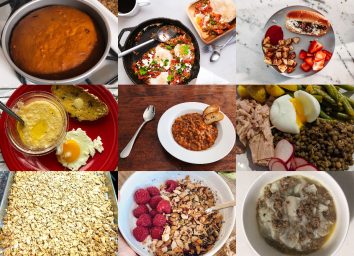8 Ways to Keep Your Dog Healthy During Quarantine
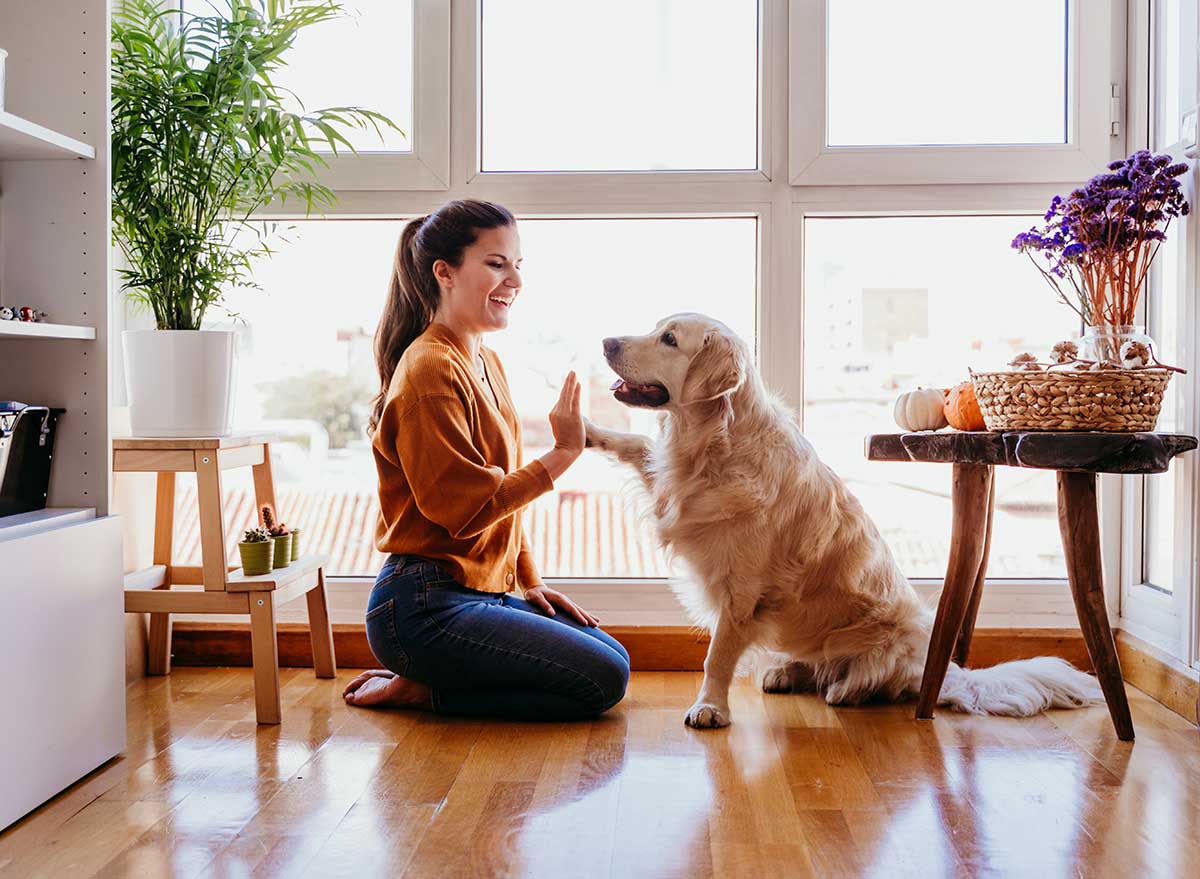
Everyone is hunkering down, living the quarantine life, which means you're spending more of your time indoors. And while you're doing all you can to stay your healthiest, you're not the only one in your house at risk of gaining the "quarantine fifteen." With so many of us sheltering in place, veterinarians are worried that pets are going to end up packing on the pounds. Having your dog in quarantine with you is great for you, but you want to keep your pooch healthy, too!
"This has been studied around the holidays: The more we are around our dogs, the more we're likely to share our food with them and treat excessively," says Ernie Ward, DVM, a veterinary food therapist and author of Chow Hounds: Why Our Dogs Are Getting Fatter. "And now if they're pestering you during a Zoom call, you may end up tossing a treat to get to distract them. Or if you're feeling guilty because you can't take them for a walk, you'll give [them] food."
All of these extra treats combined with lower amounts of physical activity may result in an unhealthy pet. Long before the coronavirus pandemic, veterinarians had warned that millions of dogs and cats in the United States are putting on a dangerous amount of weight. Fifty-four percent of dogs and 58 percent of cats are either overweight or obese, according to a survey by the Association for Pet Obesity Prevention.
As it is in humans, obesity in pets is complex with multiple causes, including genetics, environmental factors, unhealthy gut microbes, as well as the obvious things such as poor diet and lack of exercise, according to Dr. Ward. Here, he gives some advice on how to keep your dog healthy in quarantine. And be sure to click here for all of our latest coronavirus coverage.
Know your dog's language.
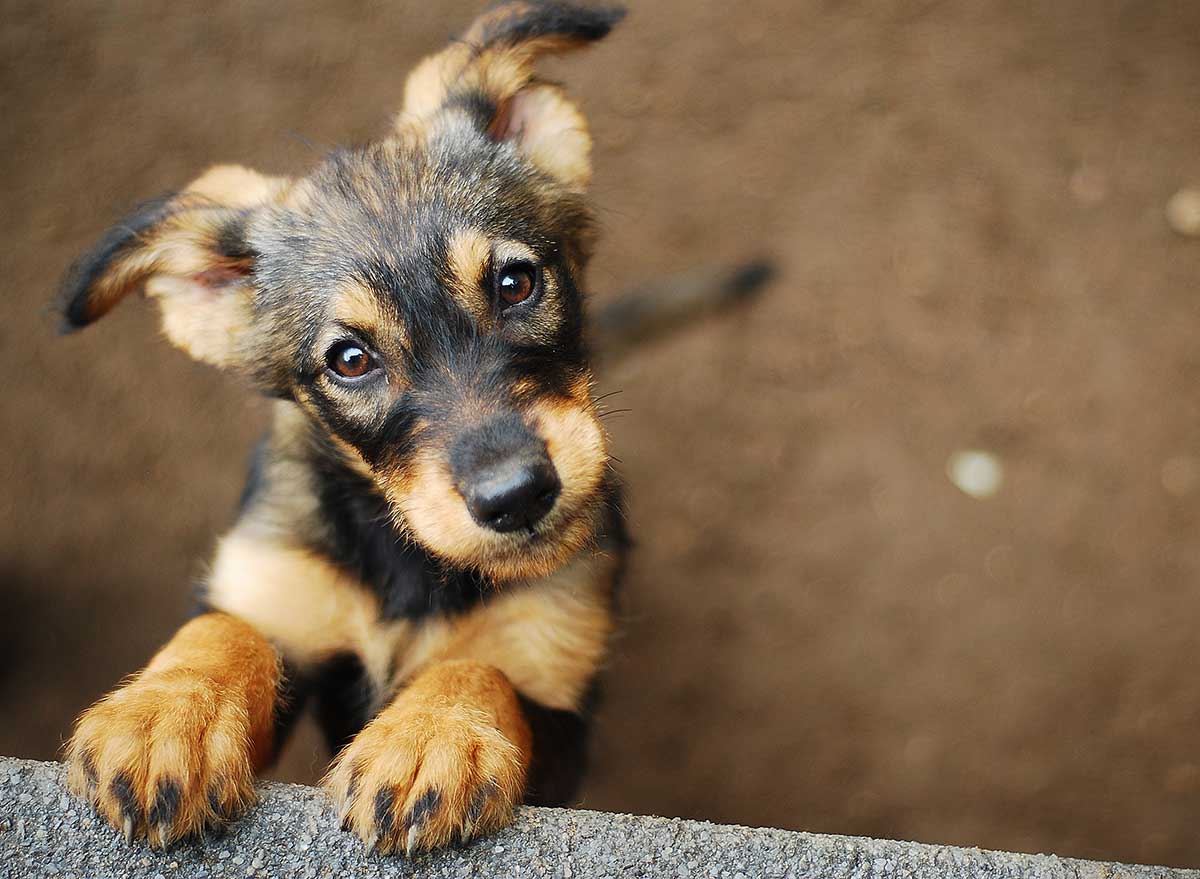
Don't misinterpret those soulful puppy eyes for "feed me." When your pup is giving you a look, they just want some TLC!
"We humans equate food with love, but most of the time your dog is looking for affection, not food," says Ward.
Keep your pup moving.
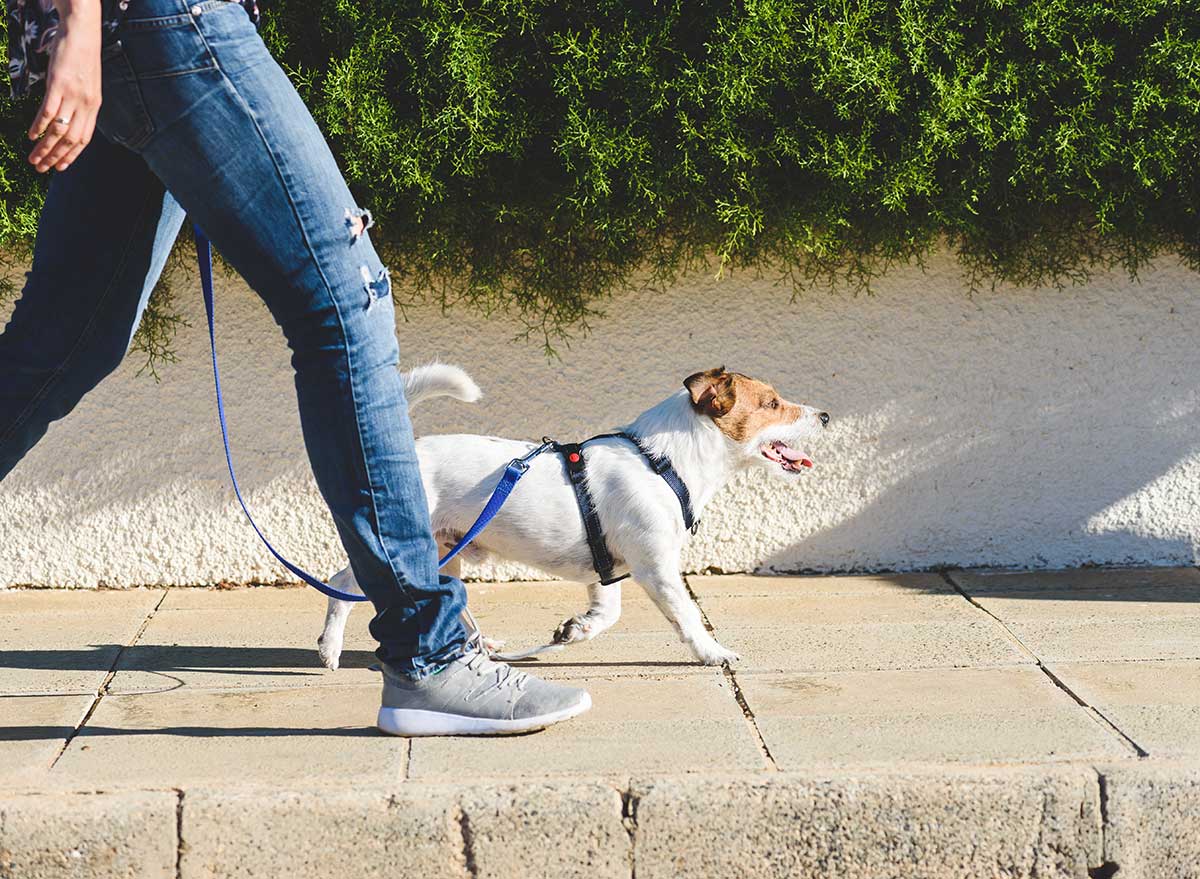
Give your dog no less than 30 minutes of aerobic activity a day, the same amount you need. So if you have a backyard or can get to an open park area where you can practice social distancing, power walk your dog on a leash and even add some interval runs if you're up for it. If you're stuck inside, walk your dog around the house for 15 minutes twice a day and to help your pooch burn off energy quickly, walk your dog up and down stairs if he is able.
Provide mental stimulation.
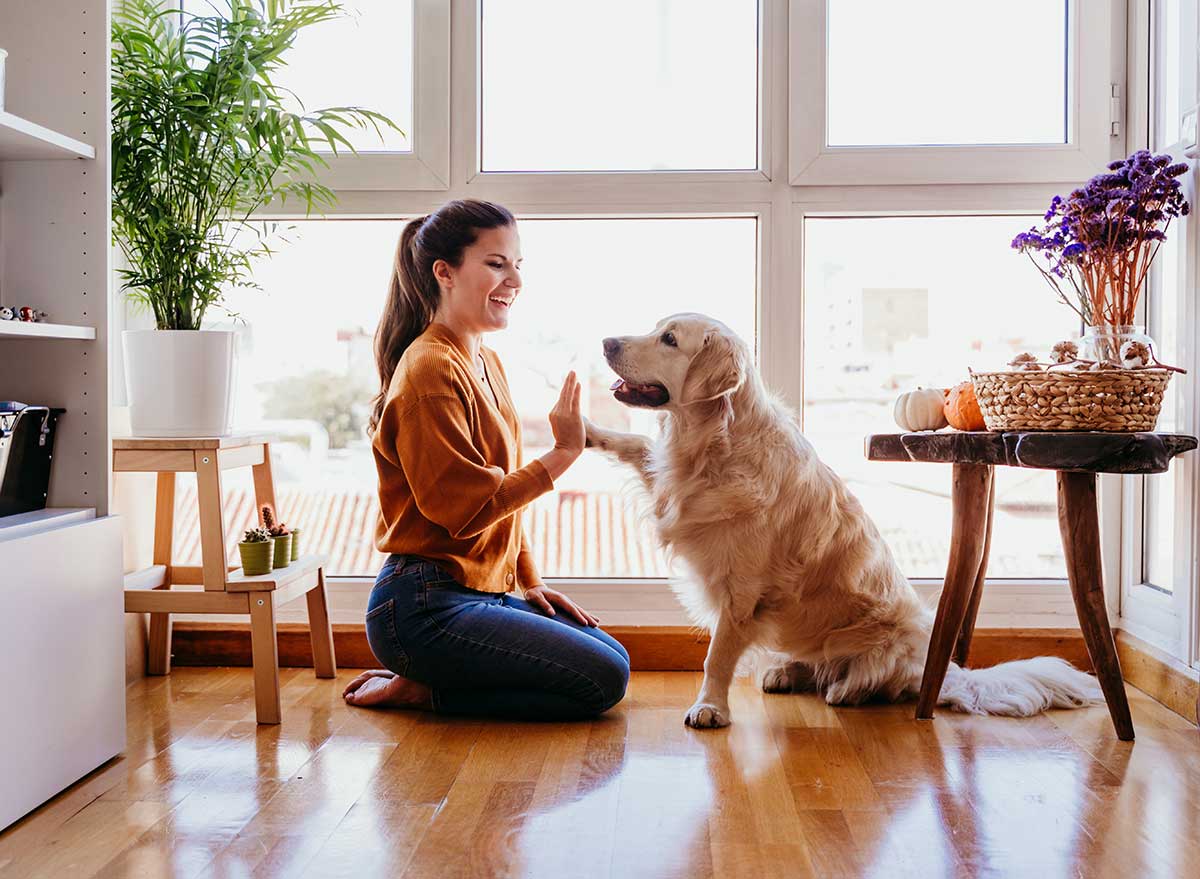
Dogs can experience boredom just like you, especially when stuck in the house. One sign of boredom is the classic tearing up the newspaper or chewing on your slippers—never fun to deal with as the owner, right? So instead, entertain your dog! You can blow soap bubbles, hide a treat around the house for him to find, or use an interactive treat dispenser. Play not only reduces stress but strengthens your bond with your pet. And here are recipes you can try out to fight boredom for you and the rest of your quarantine-mates!
Don't give seconds.
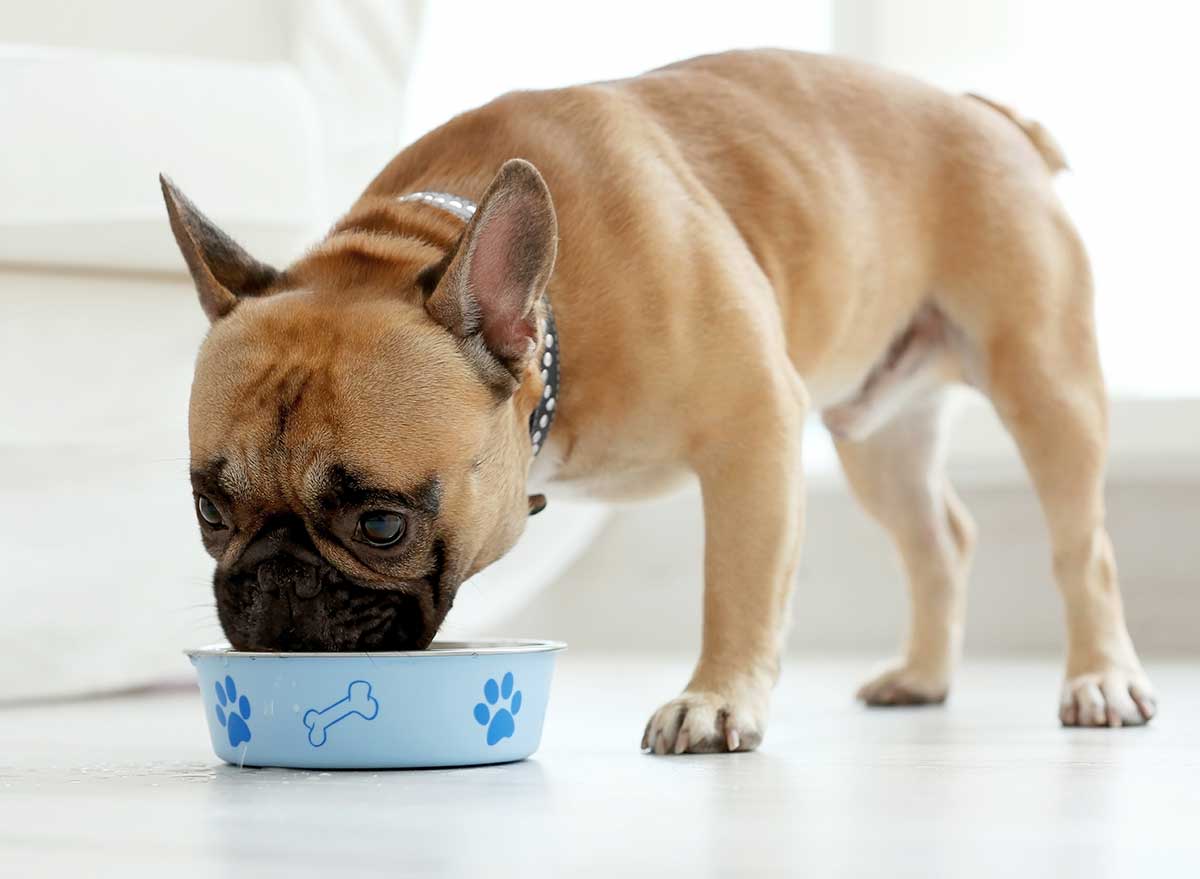
It's no secret that dogs eat, well, rather rapidly. But consuming an entire dinner in two minutes does not mean your pup needs more to eat.
Add some fish to his dish.

Feed your dog a balanced and complete commercial food for convenience, but plan to supplement with whole foods like lean beef, chicken, fish, and vegetables a few times a week.
"Dogs are fed a corn-heavy diet rich in omega-6," says Ward. "Like you, they need omega-3. So feed them oily fish like sardines, salmon, mackerel."
STAY INFORMED: Sign up for our newsletter to get the latest coronavirus foods news delivered straight to your inbox.
Introduce Meatless Mondays.
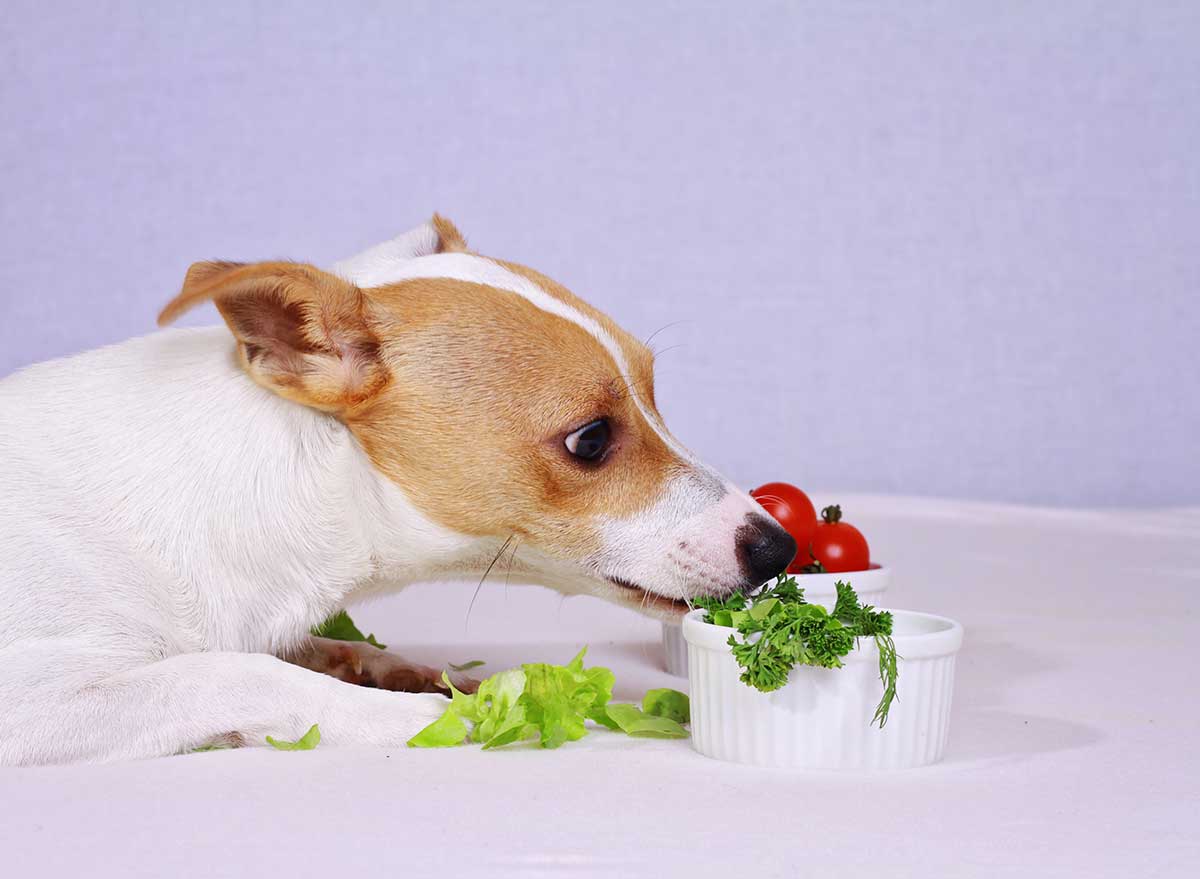
Give them plants—yep, we're talking anything from broccoli, baby carrots, to celery.
"People make the mistake of sharing pizza crust and half a hamburger [with their dog]," says Ward. "If it's not good for you, it's not healthy for your pet." Just be sure not to give your pet any of these foods dogs can't eat.
Don't put a mask on your dog.
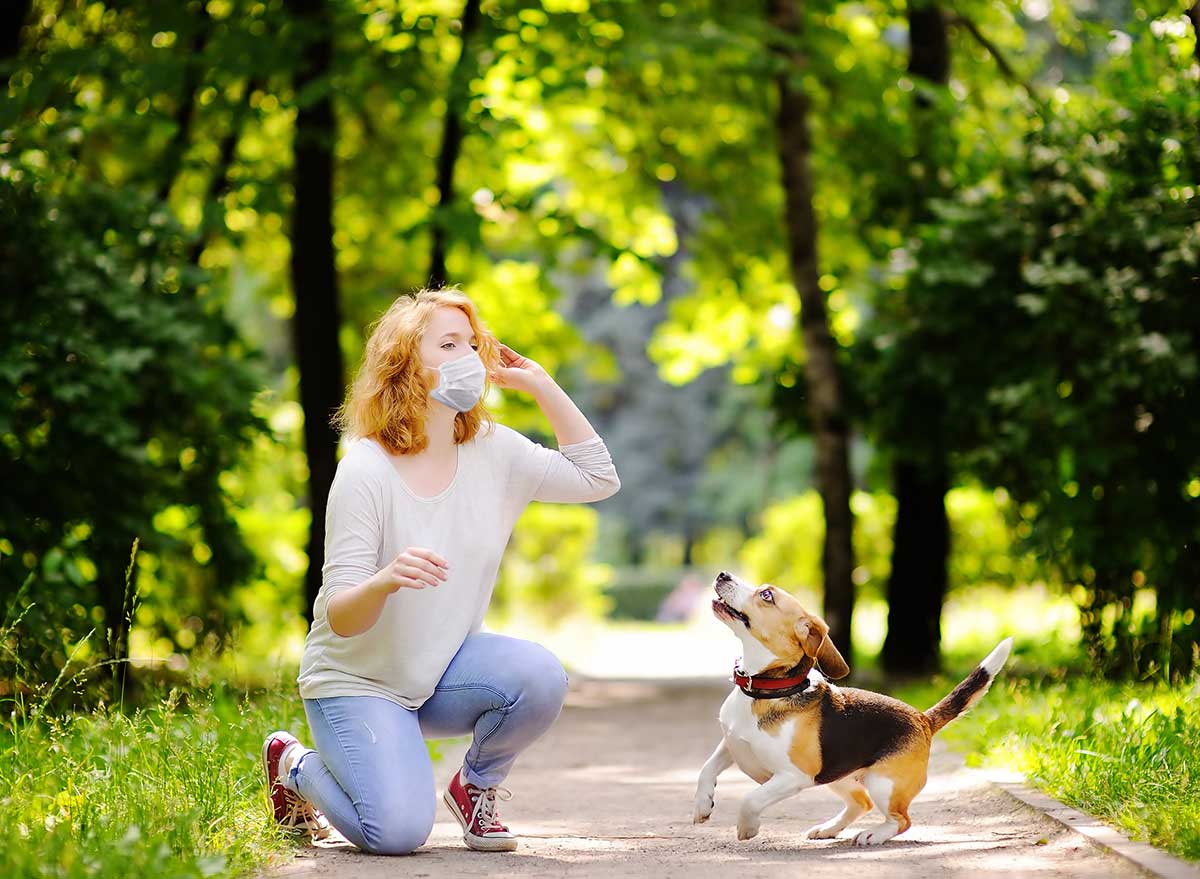
No matter how cute they look in pet personal protective equipment, don't put a mask on your dog.
"There is no evidence that cats or dogs can transmit the virus to people, other than serving as an accidental fomite, in the same way you could potentially contract COVID-19 from a contaminated door handle," says Ward. "Dogs are a species that, based on all scientific evidence, cannot actively infect other dogs (or people) or experience COVID-19 symptoms. Besides, [a mask will] just stress out your pet."
Keep your dog outside when you're shopping.
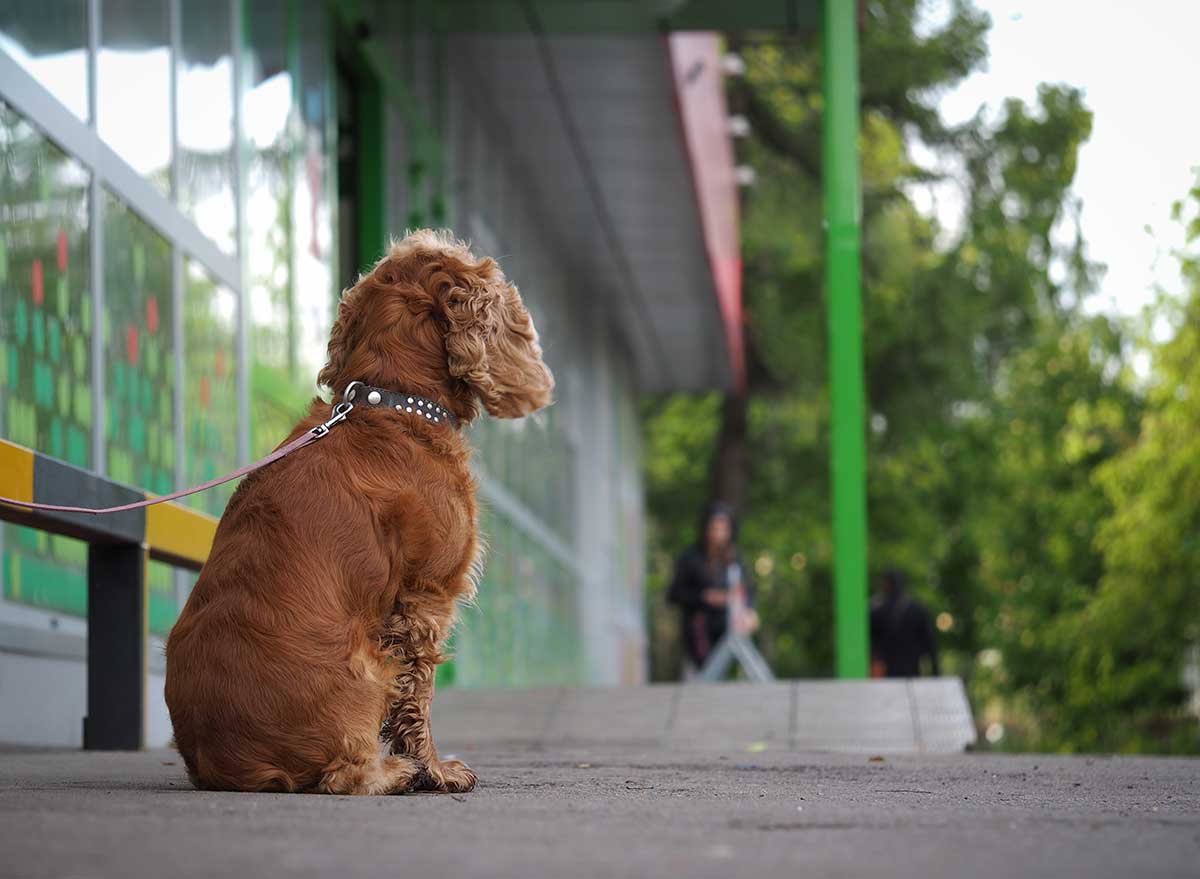
Dogs are welcome in some stores, but Ward advises not bringing them inside.
"You should absolutely practice social distancing with your dog and limit your dog's interaction with both people and dogs," he says. "If your dog picks up the virus from a stranger that pets your dog, the virus can transfer from its coat to you." And to help your dog deal with separation anxiety when you return to work, check out Ward's webinar From Always Home to Home Alone, Overcoming Anxiety in Your Post-Pandemic Pooch on May 5 at 12:30 p.m.


